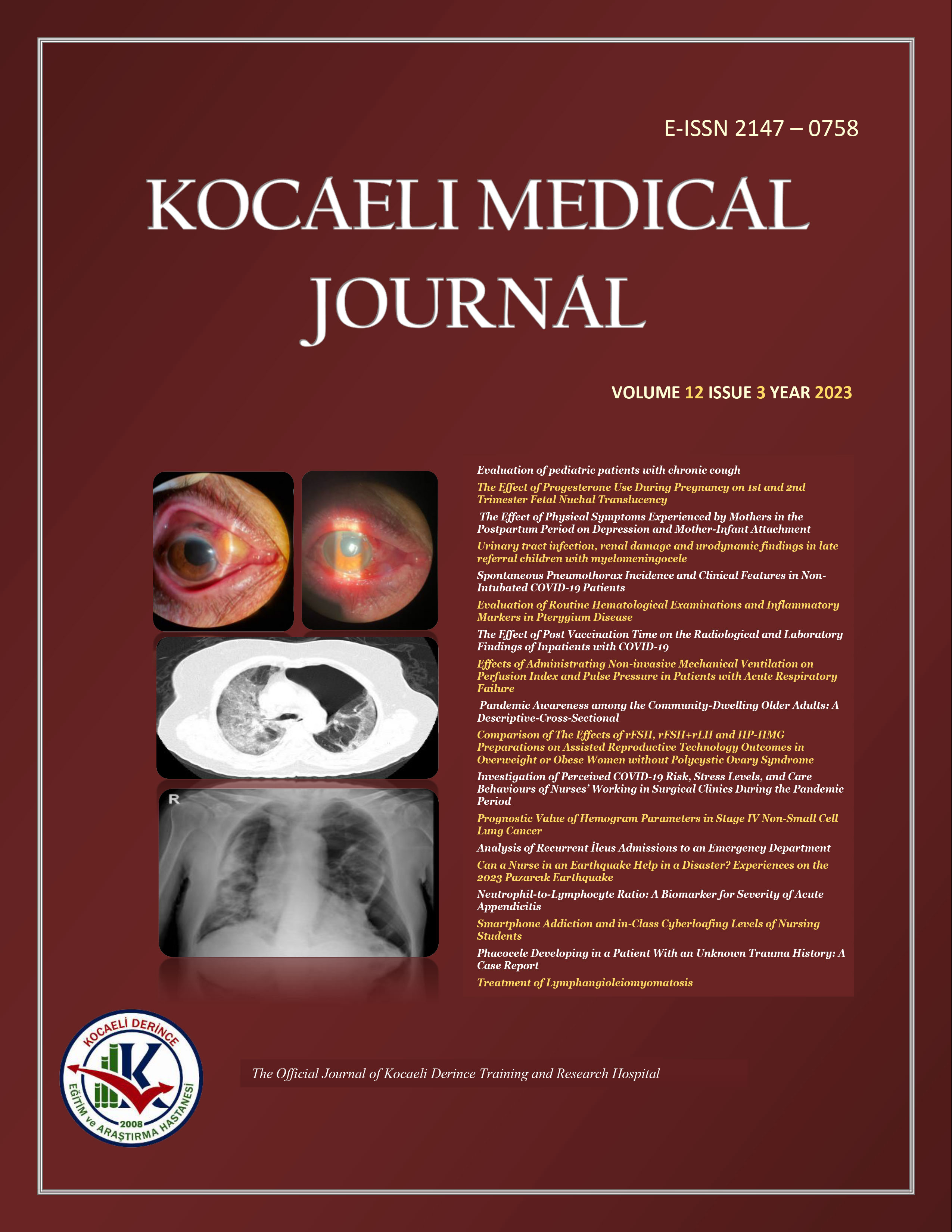
Nursing Students Use of Complementary and Holistic Therapies to Reduce Stress
Özlem Akman, Dilek YıldırımIstabul Sabahattin Zaim University, Faculty of Health Sciences, Department of Nursing, Istanbul, TurkeyINTRODUCTION: It was carried out to determine the complementary / holistic treatments approaches and use situations of nursing students in reducing stress in their school and daily lives.
METHODS: In the research, mixed method (quantitative and qualitative) was used. The research was carried out with 132 students without selecting the sample. Answering the questions took about 15 minutes. In the analysis of students' introductory features, number and percentage, and thematic analysis method was used for open-ended questions.
RESULTS: 77.27% (n = 102) of the students recommend and use complementary / holistic treatments, 6.07% (n = 8) do not recommend and use and 16.66% (n = 22) They answered I have no idea.The applications they made to reduce their stress are gathered under six headings.At the same time, 53.03% (n = 70) of the students defined the general effects of complementary / holistic treatments, while 46.96% (n = 62) defined the special effects.52.85% (n = 37) of those who defined the general impact stated that they were not positive, 35.71% (n = 25) were negative and 11.42% (n = 8) were not sure.
DISCUSSION AND CONCLUSION: It has been determined that nursing students use complementary / holistic treatments to reduce their stress in school and daily life and need more information on these issues. For this reason, it may be recommended that students be informed about complementary / holistic therapies during the education period and learn methods that reduce stress by practicing professionals.
Hemşirelik Öğrencilerinin Stresi Azaltmada Tamamlayıcı ve Bütüncül Tedavileri Kullanma Durumları
Özlem Akman, Dilek Yıldırımİstanbul Sabahattin Zaim Üniversitesi, Sağlık Bilimleri Fakültesi, Hemşirelik Bölümü, İstanbul, TürkiyeGİRİŞ ve AMAÇ: Hemşirelik öğrencilerinin, okul ve günlük yaşamlarındaki stresi azaltmada tamamlayıcı/bütüncül tedavileri yaklaşımları ve kullanma durumlarını belirlemek amacıyla yapılmıştır.
YÖNTEM ve GEREÇLER: Araştırmada miks metod (nicel ve nitel) kullanılmıştır. Araştırmada örneklem seçimine gidilmeden 132 öğrenci ile gerçekleştirilmiştir. Soruların cevaplanması yaklaşık 15 dakika sürmüştür. Öğrencilerin tanıtıcı özelliklerinin analizinde sayı ve yüzdelik, açık uçlu sorularda tematik analiz yöntemi kullanılmıştır.
BULGULAR: Öğrencilerin %77,27si (n=102) tamamlayıcı/bütüncül tedavileri tavsiye ederim ve kullanılırım, %6,07si ( n=8) tavsiye etmem ve kullanmam ve %16,66sı (n=22) fikrim yok cevabını vermişlerdir. Streslerini azaltmak için yaptıkları uygulamalar altı başlık altında toplanmıştır. Aynı zamanda öğrencilerin %53,03 (n=70)ü tamamlayıcı/bütüncül tedavilerin genel etkileri tanımlarken, %46,96 (n=62)sı özel etkileri tanımlamışlardır. Genel etki tanımlayanların %52,85i (n=37) pozitif, %35,71i (n=25) negatif ve %11,42si (n=8) emin olmadığını belirtmişlerdir.
TARTIŞMA ve SONUÇ: Hemşirelik öğrencilerinin okul ve günlük yaşamdaki streslerini azaltmak için tamamlayıcı/bütüncül tedavileri kullandıkları ve bu konularda daha fazla bilgiye ihtiyaç duydukları belirlenmiştir. Bu nedenle öğrencilerin eğitim dönemi içinde tamamlayıcı/bütüncül tedaviler konusunda bilgilendirilmeleri ve profesyonel kişilerden stres azaltan yöntemleri uygulamalı olarak öğrenmeleri tavsiye edilebilir.
Corresponding Author: Özlem Akman, Türkiye
Manuscript Language: Turkish












